After months of spinal cord rehab, Cyrus Lewis returns home to Colorado Springs

COLORADO SPRINGS, Colo. — An incomplete back flip while skiing Silverton’s back country led to a broken 5th cervical vertebrae, Flight for Life and spinal cord surgery for 16-year-old Fountain Valley School junior Cyrus Lewis.
After three months of spinal cord rehabilitation at Englewood’s Craig Hospital, Lewis and his family are preparing for life in Colorado Springs.
It starts with a test drive.
In a van purchased with funds from a community-driven GoFundMe campaign, Lewis and his parents rolled up to his grandmother’s house in north Colorado Springs. It’s the first of many trips they’ll make this year.
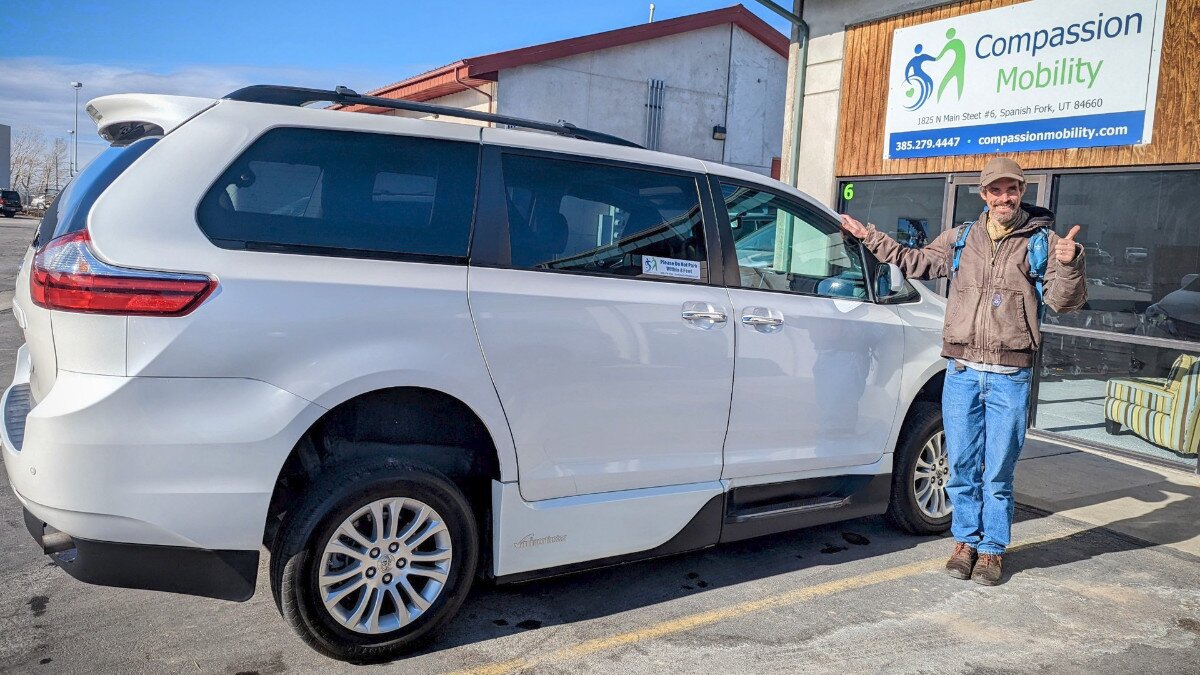
Ascending a newly constructed mobility ramp, two excited dogs swarm Lewis in welcome. He said it’s these simple things he relishes.
“It’s really nice to see a dog,” Lewis said with a grin. “They'll come up to you, and they don't really care that you're in a wheelchair. They know it's me, you know?”
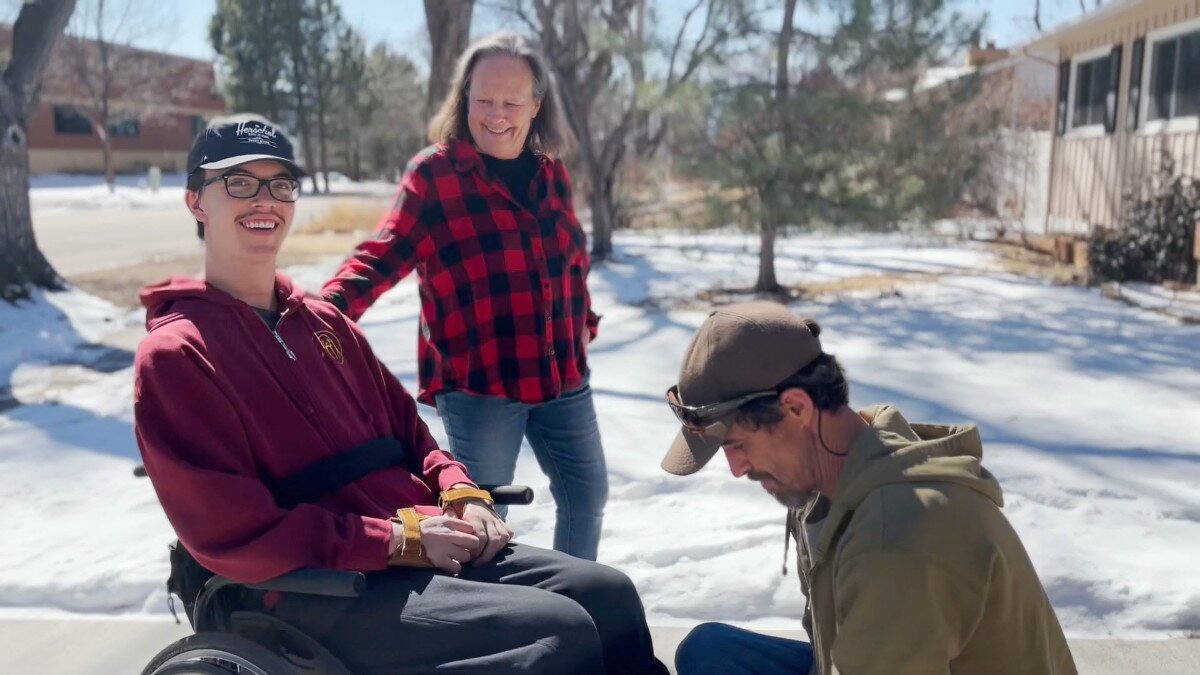
“I think that's a big thing with the injury. A lot of people think it could have changed me,” Lewis said. “Which it definitely did. That's a fear that I have — that people will see me differently, and not for the same person that I used to be.”
Growing up, Lewis joined his parents on trips everywhere from Costa Rica to hiking the Himalayas. An active climber and outdoor enthusiast, he rafted through the Grand Canyon last summer.
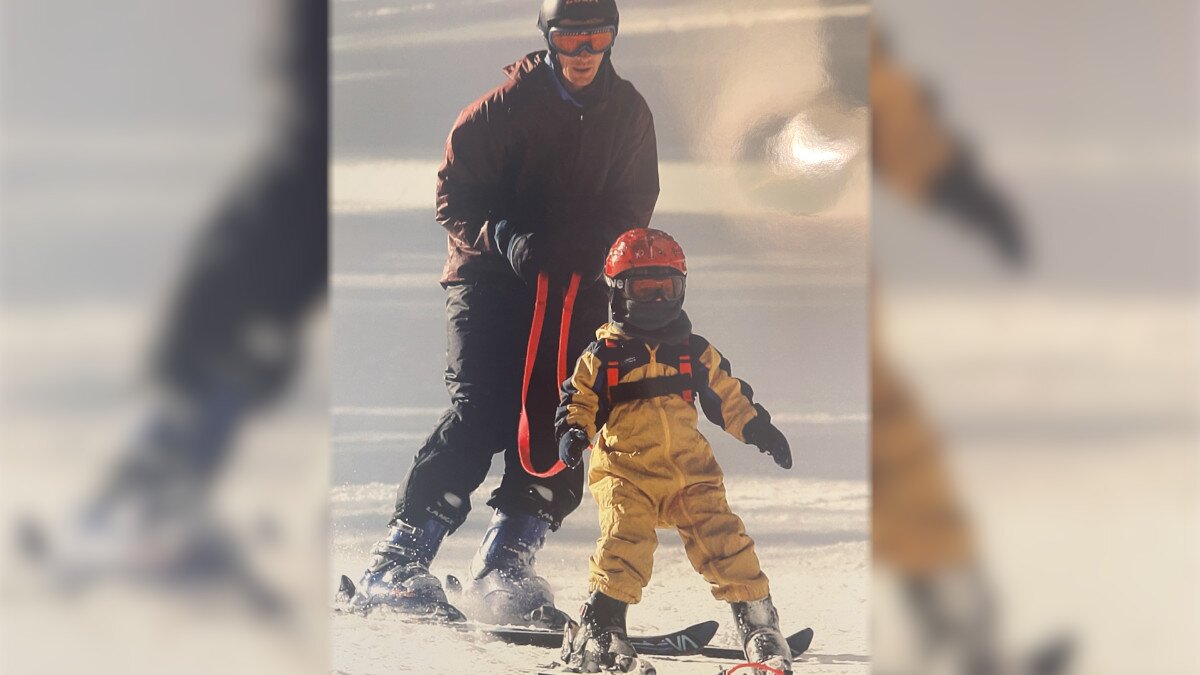
At two years old, “my dad would put me on the mountain with a harness, and take me down the mountain,” Lewis said. “I started going up as much as I could, learned, and got better. I started skiing more with my friends and trying new things.”
Home over Thanksgiving break, skiing with friends at Purgatory in Durango, Lewis said there wasn't much snow. They hopped in his car and drove to Silverton’s back country in search of more. “We would hike up and ski down,” Lewis said. “We set up some PVC rails.”
Later in the day, they set up a jump deeper in the woods.
“A couple of my friends on snowboards were trying back flips, and it looked like it was going well. I hadn't thrown a back flip this year,” Lewis said.
Going down the hill, “I didn't have enough speed, or the jump wasn't big enough,” Lewis said. “When I came around, I caught my tips. I almost made the flip, and then it kind of sent me down the hill. When I came down, I crunched. I stayed pretty conscious for it. I think I blacked out for like a minute or so.”
Lewis remembers waiting to regain enough strength before calling his friends for help.
Some of Lewis’ friends left for the 10 minute hike back to the car, then to drive to find cell service to call 911. Others stayed behind, positioning Lewis and wrapping snow around his neck.
“It was pretty surreal,” Lewis said. “I was trying to move my legs and was unable to. My mind just couldn't really wrap around what was going on.”
Mountain rescue arrived and hiked in, and his friends helped get him set up on a stretcher, Lewis said. They brought him down in a snowmobile to an ambulance.
“I asked a paramedic, ‘Do you think I'm ever gonna be able to walk again?’” Lewis recalls. “And they're like, ‘From what it looks like, you've broken your neck. And it seems unlikely that you'll be able to walk again.’”
Flight for Life took Lewis back to Durango, and from there, Lewis was transferred to Children's Hospital in Denver, where he had surgery.
“They went in from the front and the back and put in hardware to stabilize my neck,” Lewis said.
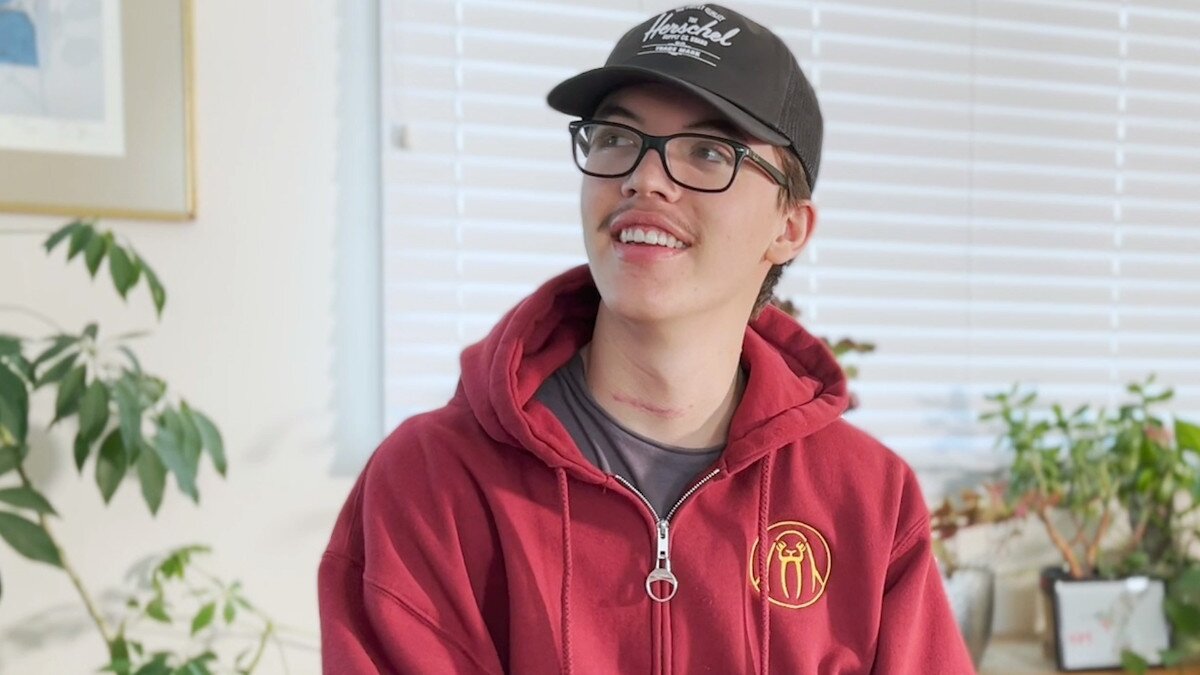
He explained that with a cervical spinal cord injury like his C5 injury, “that's when it affects your arms and your ability to move your fingers and so forth; you're quadriplegic instead of a paraplegic.”
“The first six months is when you can have the most recovery,” Lewis said his team explained to him. "But recovery can happen up to two years. It depends how much your spinal cord was injured. It's about the nerve damage and how much regeneration of my nerves can heal and be able to make the connections from my brain to my body.”
Assisting Lewis in recovery are his family and a community of friends, neighbors and others near and far who have rallied for his return to Fountain Valley School. A GoFundMe site was set up to fund renovations, equipment, and lifestyle changes necessary to support Lewis’ recovery.
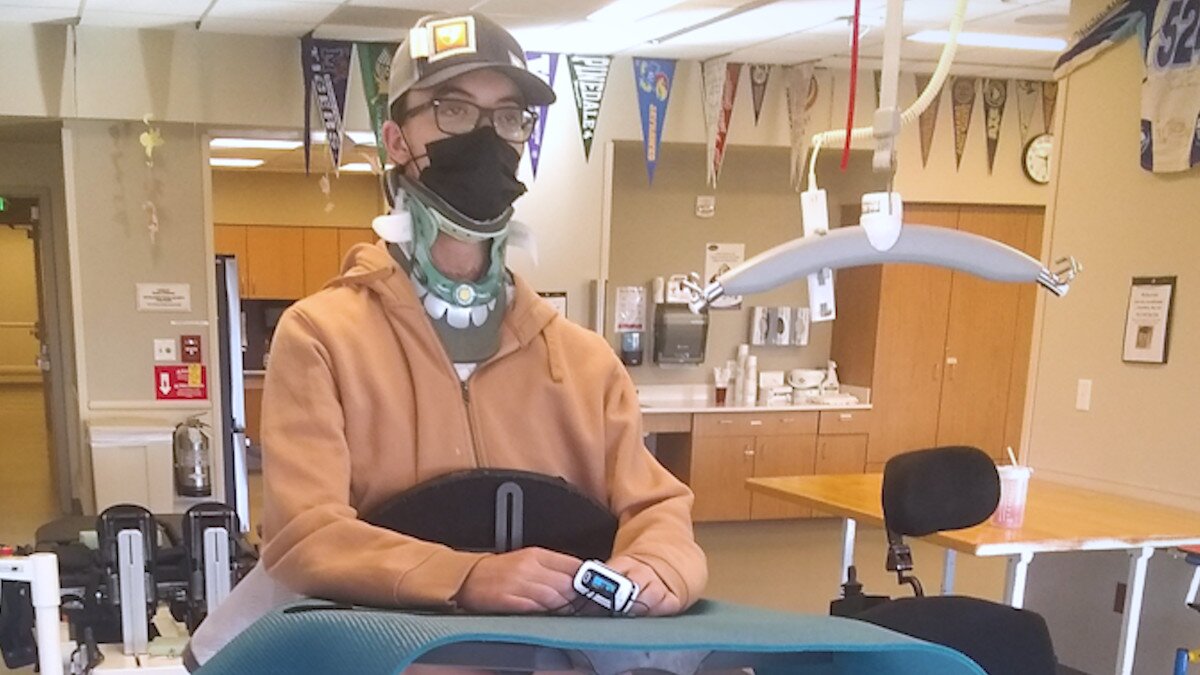
Since his freshman year, Lewis has been attending Fountain Valley School as a boarding student on scholarship. Today, his parents are both preparing to relocate from Durango to Colorado Springs part-time to live with Lewis while he attends school. He said he has been trying to keep up academically so he can graduate on time with his class next year, and is thinking ahead to adaptive technologies he can use to assist his academics.
“It's not as easy as it used to be, because I can't use my hands,” he said. “It's a lot harder to do anything school-wise. It's really emotionally challenging.”
Above all, Lewis credits his parents for their support in helping him navigate every aspect of their new lifestyle. They purchased a home near the FVS campus, and are working towards adapting it into a wheelchair-accessible space.
“I have really amazing parents,” he said. “I can't even begin to say how thankful I am, let alone all the things they've done for me in my lifetime. They've both given me tons of great life experiences and taught me really valuable lessons.”
He praised his mother, Kristin Harmon, for making him feel comfortable and safe though everything, and his father, Don Lewis, for managing “the physical aspects of being a caregiver,” Lewis said. His father keeps a journal account of their healing journey.
Lewis said his father is experienced in how to take care of someone who has experienced a spinal cord injury. A massage therapist, his father was also a caregiver for a quadriplegic man for seven years, he said.
“His name was Johnny Bulson. He was an incredible person,” Lewis said of his dad’s client, who quickly became like family. “He was injured in his thirties in a head-first dive in the San Juan River, and I got to know him when I was about nine. I was able to spend a lot of time with him and ask him about his life and experiences.”
Lewis said his conversations with Bulson growing up were some of his most formative, expanding his understanding of consciousness and life itself.
After his own injury, Lewis and Bulson, 67, spent time together “where we were both in wheelchairs,” Lewis said. “We both had the same level of injury. We just really took each other in. It was a really powerful experience. He gave me a couple tips and tricks.”
Bulson had developed a skin injury, Lewis said, along with other conditions, and passed away soon after, on February 6, in his sleep.
Lewis showed a metal ring with Velcro he uses to help augment his mobile phone. “This was Johnny’s,” he said.
“I feel like I've grown like a lot more emotionally resilient over the last three months,” Lewis reflected. “I think the hardest part of recovery is definitely losing my independence. Before, I had a hard time asking for help. I’ve had to kind of open up to that, and be okay with that.”
His perception of life, Lewis said, has changed.
“I don't necessarily know how to tell you how my perception of life has changed — but it's an earth-shattering thing,” Lewis said. “All your plans go out the window.”
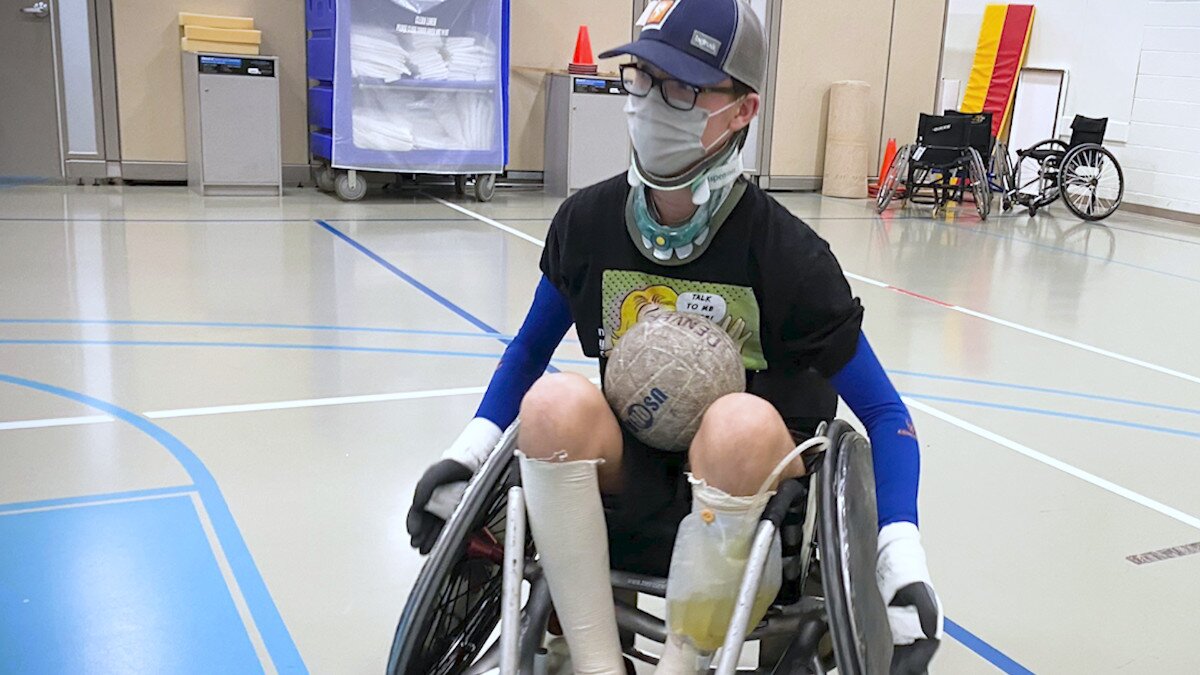
“I'm excited to live the rest of my life, whether it's in a wheelchair or not,” Lewis said. “I'm gonna go travel. I'm gonna go ski. I’m excited to get stronger and to be able to try new things, like wheelchair rugby.”
Lewis and his support team will operate from outpatient apartments on the Craig medical campus until the end of March. There, his parents are responsible for caregiving and maintaining therapeutic programs until Lewis is deemed well enough to no longer need nurses and medical technicians to help manage his daily care.
“Lots will be learned in those apartments,” said Don Lewis in a Caring Bridge post.
If anything, these challenges have fueled Lewis.
“If you’re only faced with easy situations your whole life, you're never gonna grow,” Lewis said. “The most you grow in your life is when you are faced with hardships. I think it's gonna be pretty powerful going forward.”
Around every corner, Lewis said he has felt the support of his community — and even strangers.
“I’m really thankful for all of the support that friends and my community have given me,” Lewis said. “Just to see how much love and support is out there, and to see everybody come together and check in on me, has meant so much to me.”
Kate Perdoni is a multimedia journalist for Rocky Mountain PBS and can be reached at kateperdoni@rmpbs.org.
